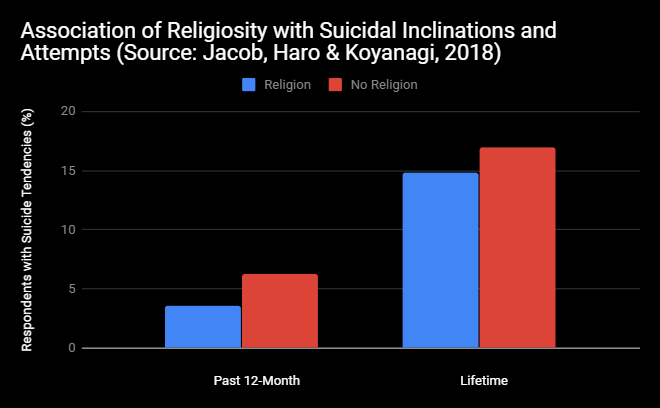
Mental wellness is a positive approach to life that recognizes the human need for happiness, meaning and peace. Using mental wellness quotes to live a happier life can inspire you to take care of your well-being. These quotes will encourage you to take charge of your own life and tap into your Everyday Power. Continue reading to find out some great mental wellness quotes. Here are some of my favorites:
Mental well-being is a salutogenic approach
"Mental wellness" is defined as a positive state or well-being. It includes stress, loneliness and worry as well as highlighting positive aspects of life like personal growth. The salutogenic approach focuses on promoting positive human functioning and preventative health. It's self-directed and encourages people to take control of their lives, embrace personal agency, deal with daily challenges, and find inner peace.
It recognizes the universal need for peace, joy and happiness.
We can see in nature that what we complain about will be reflected back upon us. If someone is very critical of his/her circumstances, it is more likely that they will attract misfortunes, enmities or fame. The fact is that universal nature assigns us a purpose at any point in time - for good or bad. Because change is a part of life, there's no reason we shouldn't be happy with our own lives.
It can help you achieve a better life
Wellness Wednesdays are an informal event that is held every Wednesday to remind people about mental wellness. It was created to promote mental well-being. Wellness Wednesdays are important because they help you stay motivated throughout the week and are an excellent reminder that we can all benefit from positive thinking. These quotes can be used to motivate you to seek out the help you need. Open Counseling is a website that will help you find the right wellness activity for you.

This can encourage you to seek assistance
Mental illness can make you feel isolated. Quotes about mental health can be a great way to find the strength and courage you need to seek treatment. These quotes often serve as a reminder that you should seek support and get help. You can also join support groups to help you connect with other sufferers. Your illness didn't happen by accident, so don't try to blame others. Here are some motivational quotes about mental illness.
FAQ
How can I prevent my mental health problems from happening?
Preventing problems with mental health is much easier said than done. Here are some tips:
-
Don't drink alcohol. The effects of alcohol on moods can lead to depression.
-
Avoid drugs. Avoid using drugs.
-
Get enough sleep. A lack of sleep can cause anxiety and depression.
-
Exercise regularly. Exercise can release endorphins, which make you happy.
-
Choose healthy foods. Eaten junk food can make one feel slow and unmotivated.
-
Spend quality times with loved ones. Spending time with people you love can make you feel happier.
-
Have fun. Have fun and explore new things.
-
It is important to take breaks from social networking. Social media sites can make people feel lonely and isolated.
-
Treat yourself with kindness. Treat yourself nicely, even if you aren't feeling great.
-
Ask for help. Ask for help if you are having difficulty coping. Talking to your family member or friend can be very helpful.
-
Remember to be kind and gentle with yourself. Crying helps release tension and stress. It does not necessarily mean that something is wrong.
-
Keep busy. Do something you enjoy.
-
Make sure you have good hygiene. You can feel unattractive and unkempt if you don't maintain good hygiene.
-
Keep connected. Stay positive by connecting with others.
-
Learn how you can relax. Meditation and yoga are two relaxation techniques that can help you deal with stress better.
-
Find meaning in your work. Find meaning in your hobby or work can bring you fulfillment.
-
Keep your eyes on the present moment. Focusing on the present moment will allow you to stop worrying about the future.
-
Set goals. Goal setting can help you be motivated to reach your goals.
-
Do something for yourself. You can improve your self-esteem by doing something nice for you.
-
Practice gratitude. Gratitude helps you to appreciate all of the good things about your life.
-
Volunteer. Volunteering can be an enjoyable way to spend time and make a difference in the world.
-
Give back. Giving back to others can make you feel fulfilled.
-
Be aware of warning signs. You should be aware of warning signs and reach out for assistance if you notice any changes.
How do you know if you have a mental illness?
Persons may be diagnosed with mental illness if they have symptoms that are disruptive to their daily life. Symptoms of mental illnesses vary from person to person. The most common symptoms are feeling depressed, sad, anxious, guilty and hopeless, lonely or depressed, as well as guilt, shame, guilt, guilty, guilty, guilty, suicidal and worthless.
A person could also be diagnosed with mental disorders if they meet the following criteria:
-
Disturbed thoughts or feelings
-
Disturbed behavior
-
Disturbance in functioning
-
Ability to communicate with others impaired
What are the five ways to improve wellbeing in your life?
Wellbeing is defined as "the state of physical, mental, spiritual, and social well-being". There are many factors that can impact our well-being. Your first step towards improving your health and well-being is to identify what areas of your daily life are lacking. Then, work on changing these things.
Here are five ways to improve your well-being:
-
Exercise - Exercising makes you happier.
-
Sleep - More than 6 hours sleep per night can reduce stress and anxiety.
-
Nutrition - Eating healthy foods (such as fruits and vegetables) will boost your mood.
-
Meditation - Regular meditation helps to reduce stress and anxiety.
-
Socialization: Spending quality time together with our families and friends makes us happy.
These are 5 ways to improve your mental and/or emotional health.
-
Exercise - This improves brain function, and boosts energy levels.
-
Sleep - A good way to reduce anxiety and stress is to get enough sleep.
-
Nutrition - Eating healthy foods such as fruits and vegetables will help keep your body strong and energized.
-
Meditation - Meditating regularly reduces stress and anxiety.
-
Socialization - Spending quality time with family and friends keeps us happy.
Statistics
- Appropriate nutrition and exercise are likely among the most efficacious and cost-effective positive mental health interventions. (ncbi.nlm.nih.gov)
- Neuropsychiatric diseases are the leading cause of death and disability in the U.S., accounting for 18.7 percent of all years of potential lifespan loss and premature mortality.
- Similarly, while there is some agreement about the boundaries of typical mental disorders 2, there is likely less agreement about those for positive mental health. (ncbi.nlm.nih.gov)
- More than 50% will be diagnosed with a mental illness or disorder at some point in their lifetime.3 (cdc.gov)
- It means no drinking any alcoholic beverages and no taking any drugs that aren't 100% natural.
External Links
How To
How to Care for Autism-Affected Children
Autism spectrum disorder (ASD), is a neurodevelopmental condition that causes impairments in social communication and repetitive behaviours. ASD affects one in 50 people around the world. However, there is no cure.
The first signs typically appear around 18 months in infanthood. The most common signs include difficulty understanding others' emotions, lack of eye contact, problems with language development, and difficulties in learning new skills. These symptoms may lead to anxiety, aggression and depression as well as sleep problems.
This disease is not currently understood, but researchers believe genetics could play a role. Some studies suggest environmental factors like infections, fever, diet, stress, medications, vaccines, alcohol, and tobacco use could trigger the onset of ASD. Some viruses such as rubella, measles and others may also increase the risk of developing ASD later.
Although early diagnosis and intervention can help improve outcomes, many families struggle with their child's behavior after they reach school age. The severity of the symptoms and how much support is needed will determine the treatment options. However, studies have shown that therapies that improve social interaction and reduce problem behaviors can make all the difference.